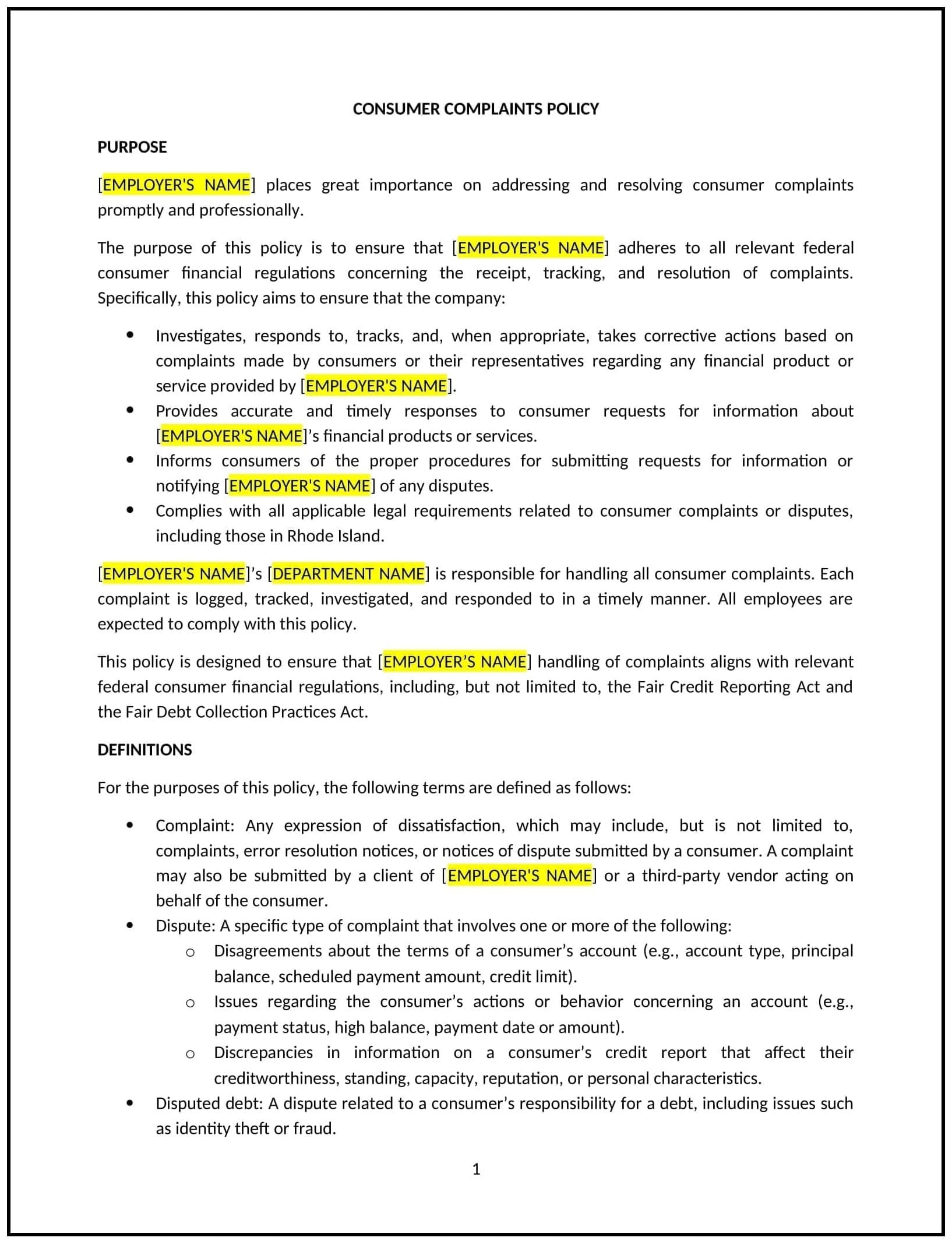Consumer complaints policy (Rhode Island): Free template
Got contracts to review? While you're here for policies, let Cobrief make contract review effortless—start your free review now.

Customize this template for free
Consumer complaints policy (Rhode Island)
This consumer complaints policy is designed to help Rhode Island businesses address customer concerns effectively and professionally. It outlines procedures for receiving, investigating, and resolving complaints.
By adopting this policy, businesses can improve customer satisfaction, build trust, and align with consumer protection standards.
How to use this consumer complaints policy (Rhode Island)
- Define complaint types: Specify what types of complaints the policy covers, such as product issues, billing errors, or service concerns.
- Establish reporting channels: Provide multiple ways for customers to submit complaints, such as phone, email, or online forms.
- Outline investigation procedures: Describe how complaints will be investigated and resolved.
- Set response timelines: Specify how quickly customers can expect a response and resolution.
- Train employees: Educate staff on how to handle complaints professionally and follow the policy.
- Review and update: Assess the policy annually to ensure it aligns with evolving business needs and legal standards.
Benefits of using this consumer complaints policy (Rhode Island)
This policy offers several advantages for Rhode Island businesses:
- Improves customer satisfaction: Demonstrates a commitment to addressing customer concerns promptly and professionally.
- Builds trust: Shows customers that their feedback is valued and taken seriously.
- Reduces disputes: Provides a structured process for resolving complaints, minimizing escalation.
- Aligns with consumer protection standards: Supports adherence to state and federal regulations.
- Enhances reputation: Positions the business as customer-focused and responsive.
Tips for using this consumer complaints policy (Rhode Island)
- Communicate the policy: Share the policy with employees and include it in customer-facing materials.
- Provide training: Educate employees on how to handle complaints professionally and follow the policy.
- Monitor complaints: Regularly review submitted complaints to ensure timely resolution.
- Address issues promptly: Take corrective action to resolve complaints and prevent recurrence.
- Update regularly: Assess the policy annually to ensure it aligns with evolving business needs and legal standards.